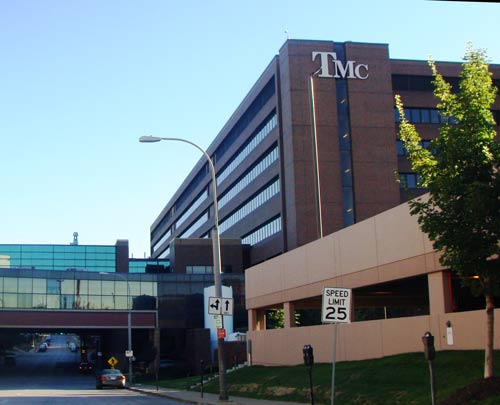Helzberg School of Management
Student Becomes First from Rockhurst to be Accepted into Bluford Healthcare Leadership Institute

In February of 2018, Antonio Zamudio-Moore became the first ever Rockhurst student to be accepted into the Bluford Healthcare Leadership Institute. Zamudio-Moore didn’t hear about the opportunity until fairly late in the application window, but was compelled to apply because of the Institute’s emphasis on advocating for people who have been subject to historical and present discrimination.
Zamudio-Moore is a junior in the Helzberg School of Management.
Read a Q&A with Antonio Zamudio-Moore below.
What is the Bluford Healthcare Leadership Institute?
The institute is a two-phased program. Minority scholars get an opportunity to be in the health care space and see themselves as leaders and explore their career interests. The first phase is two weeks. After the end of the two weeks scholars are placed into phase two which occurs the following summer for three months where they’re placed in a clinical setting. Mr. Bluford is president of the institute. He helps place people in places where they will excel. Some scholars get placed in Truman Medical Centers, others get placed at locations in Chicago. There are a lot of different opportunities all over the country.
Three other scholars and I were local, most other students came from historically black colleges and universities around the country. The three other local fellows attend UMKC.
What interested you in applying for the Institute?
What interested me the most about it was advocating for people who have been historically discriminated against. In the health care space, a lot more scholars and professionals are needed to change that.
When did you apply?
I applied around the end of January and I was interviewed in February.
What did you think when you got in?
I was a little surprised. Mr. Bluford pulled from 30-40 scholars. He interviewed half of them. So it was pretty selective. I was really happy when I found out I got in. My mom was pretty happy, too. Only 14 scholars made it. I could tell it was pretty rare and prestigious. I had no idea just how life-altering it would be.
What did you learn at the Institute?
My biggest takeaway was that there is a really strong need for more minority scholars to enter into health care and be the change they want to see. Not just as doctors or nurses, but as administrators and CEOs — people who are influential in being that change.
The Institute changed my outlook on health care in general. I got to be in a corporate environment and learn how to navigate that in the best possible way. One of the things we went over was how to be genuine but also be professional — how to tell stories to get people to know you. There was a lot of networking and presentations — getting comfortable speaking in front of people or speaking on behalf of an organization.
My initial outlook on health care, I thought it was doctors and nurses. I learned a lot about the political and advocacy side, the administrative side, the business side. I didn’t know how that played into the health care space. You don’t see behind the scenes how hospitals run so it’s really an interesting thing.
For the advocacy side, in terms of advocating for vulnerable patient populations, I hadn’t thought about how much lobbying goes on in Washington for those people and how full-time it is to try to pass legislation to benefit vulnerable populations.
How has it influenced your goals for yourself?
The plan right now, I’m really looking into hospital administration. I’m interested in going to the business side and really learning the ropes more — maybe work toward an advocacy role for certain populations.
Who was the most impactful person you met?
I mean, obviously Mr. Bluford. One of the guest speakers, there was a CEO named Nicholas Tejada, a CEO of a hospital down in Texas. Great guy, really nice. He really understood the need to be the change. He was chief of marketing at his hospital. He grew up in Kansas, but he didn’t get into health care until the last 10 years. He had a story about being Latino but didn’t speak Spanish. He said he felt really alone but overcame stigmas and stereotypes and really rose above it.
What did you learn about yourself?
I think I learned that I am a leader and that leaders come in all shapes and sizes. I don’t have to look a certain way or fit a standard that people ascribe to. Leadership is an attitude. It’s not about position; it’s a spirit.
Would you encourage other students to apply?
I definitely would. Once Mr. Bluford sees something in you he’ll take notice and really help you to flourish. It will definitely get you to see another side of life.








